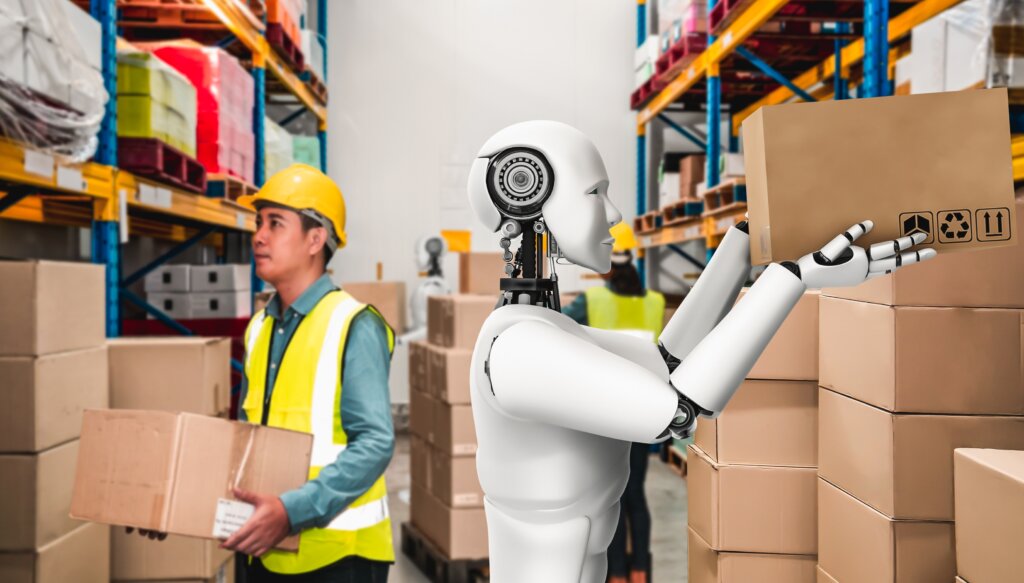
(Source – Shutterstock)
Tech layoffs: AI is about to take over more jobs
Just over five years ago, tech companies started pushing the implementation of Artificial Intelligence (AI) for some tasks in enterprises. Most organizations assured their employees that the technology would not replace their roles but make their working life much easier.
Fast forward to now, AI adoption in businesses keeps increasing. Not only has the technology become more affordable, but it can also complete a lot more tasks. Be it basic workloads like filing and sorting documents or preparing and measuring KPI goals for screening candidates for potential roles, AI has proven to be the perfect virtual employee for businesses.
The large tech companies that design the technology are also the largest adopters of it. For example, Microsoft recently announced that it is laying off about 10,000 employees despite making a US$52.7 billion revenue. Microsoft also announced investment plans of US$10 billion in OpenAI, the creator of ChatGPT, with plans to integrate the tech into Microsoft Azure and Bing.
Meanwhile, Google is eliminating 12,000 jobs, which make up about 6% of its workforce, while Amazon is laying off 18,000 employees. Several other tech companies have also announced layoffs over the past few weeks.
But here’s the thing. Which employees are actually being laid off and how will these companies cope? Will there be a shortage of skilled employees if the layoffs continue? Are the layoffs in the tech industry actually signs of how other industries could struggle in the future?
AI capable of more jobs today
AI could be the technology that fills the void in these companies. For example, some of the employees losing their jobs at Amazon are from its retail sector, where roles are being replaced with technology. Amazon already has several retail stores that do not rely heavily on a human workforce. Most of its warehouses are almost fully automated and delivery services are now also being automated and carried out by drones and self-driving vehicles.

(Source – Shutterstock)
Sundar Pichai, CEO of Google and Alphabet, wrote to employees, “I am confident about the huge opportunity in front of us thanks to the strength of our mission, the value of our products and services, and our early investments in AI. To fully capture it, we’ll need to make tough choices. So, we’ve undertaken a rigorous review across product areas and functions to ensure that our people and roles are aligned with our highest priorities as a company. The roles we’re eliminating reflect the outcome of that review. They cut across Alphabet, product areas, functions, levels and regions.”
Pichai’s message is clear. AI is the future for Google and employees who are not able to adapt to it or work with AI will be replaced. It isn’t surprising that tech companies are beginning to follow suit after hiring sprees during the pandemic. AI has become so advanced that it is capable of almost any task.
Microsoft co-founder Bill Gates, who still serves as an advisor to Microsoft, has also admitted that the reality is some white-collar jobs could go as a result of greater sophistication in AI. In an interview with the Australian Financial Review, Gates said there were obvious benefits from generative AI in the medical profession and across other industries where a lot of information needs to be understood.
It remains to be seen how much of an impact AI will have in other industries. However, for now, the tech industry is increasingly reliant on AI. The banking and finance industry is already implementing for AI to deal with fraud while manufacturing plants are becoming fully automated with minimal human control needed. AI in retail is already helping customers make better purchase decisions and in healthcare, it’s helping doctors diagnose patients a lot faster as well.
If AI continues to improve, the final question will be, what jobs will be left – especially for those that are not able to reskill and upskill themselves? Interesting times lie ahead.
READ MORE
- The criticality of endpoint management in cybersecurity and operations
- Ethical AI: The renewed importance of safeguarding data and customer privacy in Generative AI applications
- How Japan balances AI-driven opportunities with cybersecurity needs
- Deploying SASE: Benchmarking your approach
- Insurance everywhere all at once: the digital transformation of the APAC insurance industry


